Christina Thompson: Sea People: The Puzzle of Polynesia
January 14, 2020 by David
Filed under Non-Fiction, WritersCast
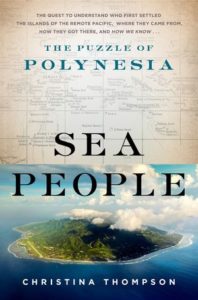 Sea People: The Puzzle of Polynesia – Christina Thompson – 9780062060877 – Harper – Hardcover – 384 pages – $29.99 – March 12, 2019 – ebook editions also available at lower prices, varying by outlet.
Sea People: The Puzzle of Polynesia – Christina Thompson – 9780062060877 – Harper – Hardcover – 384 pages – $29.99 – March 12, 2019 – ebook editions also available at lower prices, varying by outlet.
“I loved this book. I found Sea People the most intelligent, empathic, engaging, wide-ranging, informative, and authoritative treatment of Polynesian mysteries that I have ever read. Christina Thompson’s gorgeous writing arises from a deep well of research and succeeds in conjuring a lost world.”
– Dava Sobel, bestselling author of Longitude and The Glass Universe
I completely agree with Dava Sobel. This is an incredible book, probably the best introduction to the ancient and modern world of the Polynesian people of the Pacific islands you could ever read. She starts with an anecdote of modern Polynesia that aptly sets the scene for the entire story. Thompson is married to a Maori (her first book, Come on Shore and We Will Kill and Eat You, tells the history of the Maori people of New Zealand, who are among the many groups of Polynesians). When she and her husband are in Hawaii about to rent a kayak, the Hawaiian managing the concession tells them it rents for “thirty dollars….but twenty for you, brother.” It’s a striking moment, giving Thompson the opportunity to explain the entire outline and genesis of the book. Polynesians all over the Pacific from New Zealand to Hawaii to the Easter Islands are related to one another. They all instantly recognize the cultural connection, and while many of the lifeways and life skills that existed hundreds or a thousand years ago have disappeared, and European and Asian influences have spread throughout the region, the ocean environment is what it always was. The mystery is, of course, how did the Polynesians navigate the open ocean for over 1000 years to populate the vast majority of the Pacific Ocean? Sea People tells that story brilliantly.
Through the course of this deftly written book, Thompson tells us how the earliest identifiable Polynesians settled this vast region. She explores what was once called the “Problem of Polynesian Origins” that fascinated the thinking of many European scientists during the late nineteenth century and into the modern era, where a variety of theories have competed to explain who the Polynesians are and how they got there (from the east or from the west, for example.)
This book is a comprehensive telling of history, geography, anthropology, and includes a great deal about the science of navigation. It’s a completely engrossing and riveting read, making it one of the more satisfying nonfiction books I have read in a long time.
Christina is a great person to talk to, so knowledgeable and comfortable with her material and never dry or pedantic in her approach to communicating so much of what she knows. It was a pleasure to speak with her for Writerscast.
My interview with Christina Thompson about her (wonderful) previous book, Come on Shore and We Will Kill and Eat You All can be found here on Writerscast, (originally posted in December, 2011.)
Christina’s author website is here.
The book is available for purchase from independent bookseller RJ Julia here.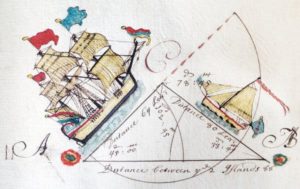
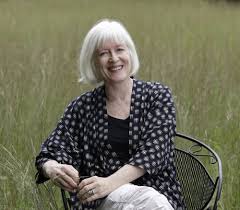
Podcast: Play in new window | Download
Christopher Ingraham: If You Lived Here You’d Be Home By Now
December 3, 2019 by David
Filed under Non-Fiction, WritersCast
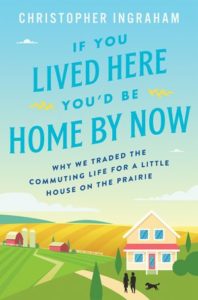 If You Lived Here You’d Be Home By Now: Why We Traded the Commuting Life for a Little House on the Prairie – Christopher Ingraham – 9780062861474 – Harper Collins – Hardcover – 288 pages – $24.99 – September 10, 2019 – ebook version available at lower prices.
If You Lived Here You’d Be Home By Now: Why We Traded the Commuting Life for a Little House on the Prairie – Christopher Ingraham – 9780062861474 – Harper Collins – Hardcover – 288 pages – $24.99 – September 10, 2019 – ebook version available at lower prices.
Despite both having good jobs, Chris Ingraham, a data reporter at the Washington Post, and his wife Briana, an administrator at a Social Security office, were having trouble with the mechanics of raising twin boys in the expensive metro area suburbs. One day, Chris wrote an article that would change his life. It was based on a USDA ranking of America’s 3,000+ counties from ugliest to most scenic. Chris found Red Lake County, Minnesota at the bottom of the list and without thinking about the people who lived there, called it “The absolute worst place to live in America.” In the quiet of an end of summer news cycle, his seemingly innocuous story went viral with a vengeance.
And unsurprisingly, some of the strongest reactions came from residents of Red Lake County. In their “Minnesota Nice” way, they asked him to think outside the numbers, and actually visit their community, and Chris, perhaps against his better judgement, agreed to fly to this isolated area of northwestern Minnesota to see for himself. He was surprised by the people he found there, not just because they were nice, but because the small towns and rural areas of northern Minnesota – miles from the nearest Whole Foods and Starbucks – turned out to be more than nice, but warm, familial and interesting.
But the big twist in the story turns out to be that after realizing how hard it was for them to live happily where they were, Chris and Briana and their kids decided to pick up stakes and move to the same Minnesota community his article had dissed in the first place.
If You Lived Here You’d Be Home by Now is ultimately, then about what happens when you make a momentous life decision that changes your life and challenges everything you think you know about yourselves and your country. In Red Lake County, the Ingraham family experience the travails of small-town gossip, learn how to deal with “real” winters in a place where temperatures commonly reach forty below zero, try to understand new activities like hunting and hockey, and how to relate to nearby neighbors who know everything about your daily comings and goings. But they also learn the joys and pleasures of life in a small community, where what you do can make a huge difference. Ingraham has a great sense of humor and is a natural storyteller. And while not everything that happens to them is either uplifting or transcendent, there is a lot here for all of us to learn about the truths and myths of small town life in America.
Ingraham has the benefit of being able to work remotely for the Washington Post, so he at least does not have to struggle with the difficulty of finding work in a small town, something that is a huge problem for many Americans who do want to stay in their hometowns. And not everyone who chooses to live in small town America is either some sort of hero or a victim of bad judgment; life is much more complex than that. The story of Chris and Briana and their kids making a massive life change is a great reminder, however, that there is so much experience in rural areas that is worthy of celebrating and preserving, before our entire country becomes a giant suburban mall.
“Thank you, Christopher Ingraham for venturing out of the bubble of stereotyping and misunderstanding that often confines American urbanites who never leave the city and smugly judge rural Americans from their leather couches. I love Mr. Ingraham for his open mind and reporter’s grasp of detail and complicated truth. He captures the charm of a small town entertainingly, without sentimentality or the canned platitudes of those who drop in for a day and count themselves expert analysts after lunchtime. Good work!”
– George Hodgman, NY Times bestselling author of Bettyville
I am pleased to announce a new enhancement to Writerscast — all the books we feature are available for purchase from our friends at R.J. Julia Booksellers in Madison, Connecticut.
You can buy a copy of If You Lived Here, You’d Be Home by Now, and know that by doing so, you are supporting independent bookselling. Click on this link to visit the RJ Julia bookstore site.
A fun PBS story about Chris, family, Minnesota and the book is here.

Podcast: Play in new window | Download
Publishing Talks: David Wilk interviews writer and entrepreneur Rachel Lehmann-Haupt
November 5, 2019 by David
Filed under Publishing History, PublishingTalks
 Publishing Talks began as a series of conversations with book industry professionals and others involved in media and technology, mostly talking about the future of publishing, books, and culture. As every media business continues to experience disruption and change, I’ve been talking with some of the people involved in our industry about how publishing might evolve as it is affected by technology and the larger context of culture and economics.
Publishing Talks began as a series of conversations with book industry professionals and others involved in media and technology, mostly talking about the future of publishing, books, and culture. As every media business continues to experience disruption and change, I’ve been talking with some of the people involved in our industry about how publishing might evolve as it is affected by technology and the larger context of culture and economics.
Rachel Lehmann-Haupt is best known for being an expert on the future of family life, career timing, and the influence of science and technology on fertility, pregnancy and family.
She is the author of In Her Own Sweet Time: Egg Freezing and the New Frontiers of Family. Her articles have been featured in a wide range of magazines and websites.
Rachel graduated with a degree in English literature from Kenyon College, and has a Masters in Journalism from the Graduate School of Journalism at the University of California, Berkeley. At UC Berkeley, she apprenticed under Clay Felker, the founder of New York Magazine. She has spoken on numerous panels at bookstores, hospitals and corporate events, and has delivered keynotes at universities.
Rachel’s newest venture, StoryMade Studios, a content development and editorial production studio was what introduced me to her work and caused me to want to talk to her for this Publishing Talks podcast series.
Much like my own work with content creators, and similar to the way movie studios work, Rachel builds teams that include writers, designers, developers, and video producers, and then manages the creation and editing of all the elements of a digital media story. StoryMade Studios focuses on health, parenting, advanced reproductive technology, neuroscience, women, sustainability, and food.
In recent years, Rachel has been a senior content strategist and strategic advisor for a number of technology start-ups, media properties, and non-profits including TED Books, The Dwell Store, Wired Magazine, BabyCenter.com, The Women 2.0 Conference, Code for America, Bridge Housing, Shebooks, and Dr. Dean Ornish/Healthways.
It was a pleasure to spend some time with her for a lengthy and wide ranging conversation when she was recently in New York City for a visit. I wanted to talk to her about her work as a writer and as a facilitator of book and other content projects, but in particular, I thought it would be really interesting to talk to Rachel about what it was like to have grown up as the child of two writers in the hothouse environment of New York City literary culture and how it influenced her own professional and personal life.
Thank you Rachel for a great conversation!
You can buy her book from RJ Julia here.
Visit Rachel’s own website here. Read about her book,In Her Own Sweet Time. 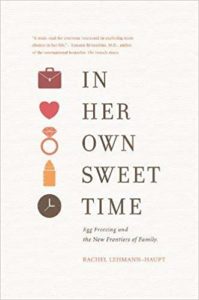
And about Story Made Studio here.
Podcast: Play in new window | Download
Thom Hartmann: The Hidden History of the Supreme Court and the Betrayal of America
October 22, 2019 by David
Filed under Non-Fiction, WritersCast
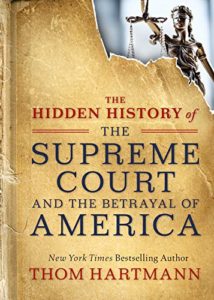 The Hidden History of the Supreme Court and the Betrayal of America – Thom Hartmann – ISBN 9781523085941 – Berrett-Koehler Publishers – Paperback – 192 pages – $15.00 – October 1, 2019 – ebook versions available at lower prices
The Hidden History of the Supreme Court and the Betrayal of America – Thom Hartmann – ISBN 9781523085941 – Berrett-Koehler Publishers – Paperback – 192 pages – $15.00 – October 1, 2019 – ebook versions available at lower prices
“Hartmann delivers a full-throated indictment of the U.S. Supreme Court in this punchy polemic.” —Publishers Weekly
This is a really important (and very short) book – so you have no excuse not to read it – no matter how busy you are.
Thom Hartmann has been a popular progressive radio host for years. In this book, he carefully and succinctly explains how the Supreme Court has gone far beyond its actual Constitutionally derived powers and provides some cogent guidance on how we can change it.
In the beginning, and until 1803, the Supreme Court was simply viewed as the final court of appeals in the judicial system, the branch of government with the least power of the three set forth in the Constitution. So we have to find out how did the concept of judicial review start, and as Hartmann points out, it began with the battle between the Federalists and Anti-Federalists, with the now well-known case known as Marbury v. Madison.
It is Hartmann’s view, and he argues persuasively, that it is not the role of the Supreme Court to decide what the law is, but rather the duty of the people through the legislative branch. He summarizes the history of the Supreme Court, giving some important examples of cases where the Supreme Court appears to have overstepped its constitutional authority.
So much of our history and beliefs about this country are mystified by a sort of glorification of a romanticized and suspect view of the Constitution and the powers of our branches of government. The Supreme Court today reflects the concerted effort of a small segment of society to control and reduce democratic principles and practices that would harm their interests. Hartmann’s book is an essential and very handy guide for anyone who would like to explore what we can do to rein in the power of the courts and increase democracy in our country. If you read Nancy McLean’s Democracy Unchained, as I hope you have, or if you are simply interested in both protecting and expanding democracy in our country, then reading this book is essential.
Buy the book from RJ Julia bookstore here.
Thom Hartmann is a progressive syndicated talk show host whose shows are available in over a half-billion homes worldwide. He’s the New York Times bestselling, 4-times Project Censored Award-winning author of 24 books in print. His radio show is syndicated on for-profit FM and AM radio stations nationally, on non-profit and community stations nationwide by Pacifica, across the entire North American continent on SiriusXM Satellite radio, on cable systems nationwide by Cable Radio Network (CRN), via subscription audio podcasts, worldwide through the US Armed Forces Network, and through the Thom Hartmann iOS and Android apps. Visit Thom’s own website to learn more about his work and many useful books. 
Podcast: Play in new window | Download
Adina Hoffman: Ben Hecht: Fighting Words, Moving Pictures
June 30, 2019 by David
Filed under Non-Fiction, WritersCast
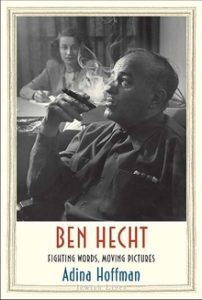 Ben Hecht: Fighting Words, Moving Pictures – Adina Hoffman – 9780300180428 – Yale University Press – Hardcover – 264 pages – $26 – February 12, 2019 – ebook versions available at lower prices
Ben Hecht: Fighting Words, Moving Pictures – Adina Hoffman – 9780300180428 – Yale University Press – Hardcover – 264 pages – $26 – February 12, 2019 – ebook versions available at lower prices
I grew up in a family where the movie business was in our blood, and part of the conversations of everyday life, so I have long known about – and appreciated – the amazing screen writing of Ben Hecht. Hecht’s many screenplays in many ways established and defined what is now standard movie practice. He wrote some of the greatest and most watched films in history, and made a well paid career out of “doctoring” other writers’ scripts. Hollywood was his reluctant artistic base for many years, though he would never be completely comfortable there.
Reading this very comprehensive, but highly readable biography by Adina Hoffman, brought Hecht’s life and work into focus for me for the first time. Hecht’s story was that of a classic 20th century second generation Jewish immigrant. He was raised in Wisconsin, made his way to Chicago, became a newspaper writer and then a novelist in the glory years after World War I, where he helped create and define the literary scene in that great city, before moving to New York, where he truly established himself as literary star.
Hecht and Charles MacArthur together wrote the now-classic play, The Front Page, becoming writing partners and pals for many years thereafter. Some of Hecht’s most famous screenplays include Scarface, Gone with the Wind, Stagecoach, Notorious and His Girl Friday. Hecht worked on literally hundreds of films, was a powerful enough writer to be able to be given the opportunity to produce four films with MacArthur (a mis-adventure described wonderfully by Hoffman). Hecht worked with some of the greatest directors, producers and actors in 20th century film. His work literally defined what a Hollywood movie could be, and much of what we think about 20th century American culture is derived from his cynical, yet optimistic worldview.
Hecht’s many novels and nonfiction books are not widely read or known today, and according to Hoffman, who has read them all, some are lost to literary history for good reason. Still, it is quite possible that this fully formed biography with its clear eyed evaluation of Hecht as passionate human, brilliant intellect and outstanding writer, will help their cause. For myself, I have made a commitment to read at least one or two of the books that Hoffman tells us are important enough to seek out, including at least one novel. I have thought about reading Hecht’s very early novel Fantazius Mallare: A Mysterious Oath, even though Hoffman pretty much dismisses it, except for one great sentence that is said to have inspired Ginsberg’s Howl. But it is his autobiography, A Child of the Century that calls out to me the most, and that I will be reading soon.
Though he was decidedly a non-secular Jew during World War II, Hecht rediscovered his Jewish identity and became a powerful public voice pressuring American politicians to save the Jews of Europe. After the war, Hecht’s Zionism led him to support the nascent Jewish state of Israel with the burning fervor of a convert, his trademark enthusiasm focused on building a safe haven for Jews, which ironically, he never visited. Hecht, as Hoffman shows us, was a complicated human being – and frequently an unforgivable one as well.
Ben Hecht was emblematic as the “child of the [20th] century” who helped to define modern Jewish America and modern popular culture. Adina Hoffman is a terrific writer and a gifted storyteller, perfectly suited to tell this story. Thanks to Yale University Press for creating an absolutely beautiful book, one that serves her writing well, and makes reading it a better experience.
Adina Hoffman is an essayist and biographer who splits her time between New Haven and Jerusalem. Fortunately, she was in New Haven when I wanted to talk to her about this book and the work that went into it. Hoffman is the author of four books, including Till We Have Built Jerusalem: Architects of a New City and My Happiness Bears No Relation to Happiness: A Poet’s Life in the Palestinian Century. She was a film critic for the American Prospect and the Jerusalem Post, and was a founder and editor of Ibis Editions, a small press devoted to the publication of the literature of the Levant. She has been a visiting professor at Wesleyan University, Middlebury College, and NYU, and was notably one of the inaugural (2013) winners of the Windham Campbell prize. Read more about Adina and Ibis Editions here.
And you can find a good bibliographical of Hecht’s work here.
Note to listeners, this interview was recording live in a room with a bit of echo, so apologies to all for the sound quality.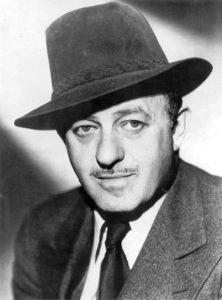

Podcast: Play in new window | Download
Erica Wagner: Chief Engineer: Washington Roebling, The Man Who Built the Brooklyn Bridge
May 6, 2019 by David
Filed under Non-Fiction, WritersCast
 Chief Engineer: Washington Roebling, The Man Who Built the Brooklyn Bridge – Erica Wagner – 9781620400524 – Bloomsbury – Paperback – 384 pages – $18 – February 5, 2019 – ebook versions available at lower prices
Chief Engineer: Washington Roebling, The Man Who Built the Brooklyn Bridge – Erica Wagner – 9781620400524 – Bloomsbury – Paperback – 384 pages – $18 – February 5, 2019 – ebook versions available at lower prices
“A welcome tribute to the persistence, precision and humanity of Washington Roebling and a love-song for the mighty New York bridge he built.” – The Wall Street Journal
It is surprising to learn that Washington Roebling, builder of the Brooklyn Bridge and a major contributor to American industrialism of the late nineteenth and early twentieth century, has never had a full biography before this one, written by the excellent essayist and critic, Erica Wagner. I found her account of Roebling’s life story completely compelling. His relationship with his famous father, John Roebling, his experience and important role in the Civil War, and the amazing years-long effort to build one of America’s most iconic – and still fully operational – bridges, is brilliantly set forth by Wagner. She documents the important involvement of Roebling’s brilliant wife, Emma Warren Roebling is the completion of the bridge after Roebling’s health was compromised by illness, and gives us a portrait of an extraordinary and representative American life.
Frequently confused with his more famous father, Roebling has been forgotten or ignored by many. Yet his life holds interest for modern readers for a variety of reasons. His story is very much an American one – his family emigrating from Germany, living on the early 18th century American frontier, fighting in the Civil War, and becoming a key figure in the establishment of a modern American industrial society. We learn that Roebling was himself surprisingly self aware psychologically, a constant observer of his own and others’ human nature, how much he suffered both physically and psychologically, wounded by the abuse of his powerful father, and how he overcame so many obstacles to live a long life, adapting to the rapid pace of social and business life during a remarkable period in American history.
Erica Wagner uses Roebling’s recently discovered personal memoir to reveal much about his life that cannot be understood simply from documenting the major events of his life and the built artifacts he left behind. Roebling’s achievements are significant. Wagner’s achievement is that she brings this relatively unknown and complex man and his family to life in prose, a wonderful gift to readers.
American writer and critic Erica Wagner was the literary editor of the London Times for seventeen years and is now a contributing writer for New Statesman and consulting literary editor for Harper’s Bazaar. Her work has appeared in the Guardian, the Economist, Financial Times, and the New York Times, among other newspapers and magazines. She is the author of several books, including Ariel’s Gift, Seizure, and a collection of short stories called Gravity. She lives in London. It was a great pleasure for me to speak with her about this excellent book, and I hope Writerscast listeners will want to seek out and read this book as well.
“A masterful work of research, revelation and gripping narrative. It brings to pulsating life 19th-century New York and New Jersey and manages to be moving, too.” ―New Statesman, “Books of the Year”
Podcast: Play in new window | Download
Joseph Kelly: Marooned: Jamestown, Shipwreck, and a New History of America’s Origin
March 18, 2019 by David
Filed under Non-Fiction, WritersCast
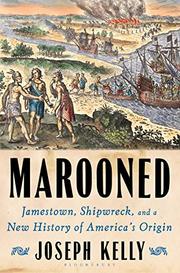 Marooned: Jamestown, Shipwreck, and a New History of America’s Origin – Jospeh Kelly – 978-1-63286-777-3 – Bloomsbury – Hardcover – 512 pages – $32 – October 30, 2018 – ebook versions available at lower prices
Marooned: Jamestown, Shipwreck, and a New History of America’s Origin – Jospeh Kelly – 978-1-63286-777-3 – Bloomsbury – Hardcover – 512 pages – $32 – October 30, 2018 – ebook versions available at lower prices
I really enjoy reading books about American history, and especially lately, books that explore some of the stories and moments that are foundational to the history of this continent, but are not well known or well told. And I’ve also become extremely concerned about gaining a better and more nuanced understanding of those stories that have been told solely from the perspective of the European (white) perspective that dominates our historical narrative, and thus our understanding of ourselves.
Joseph Kelly’s Marooned is just such a book, and I was immediately drawn to it. This is an insightful re-examination of the 1607 Jamestown settlement, the story of which really should replace the Mayflower colony’s position as America’s founding Puritan-centric myth.
In fact, the multiple stories of Europeans’ initial contact with the native peoples who fully inhabited North, Central and South America all require a complete re-examination, and I have been reading several books that provide insight into the way these continents were conquered by the marauding Europeans and their violence and diseases.
Marooned is about much more than just the Jamestown settlement. The book begins by recounting the settlement’s really awful circumstances. Most of those early settlers died of disease or starvation or deserted to the local tribes for protection. The workings of the Virginia Company that was set up to colonize and exploit the supposedly “virgin” New World are fascinating and in some ways depressingly familiar to our modern large scale version of unrestrained capitalism.
The traditional blame for the miseries of Jamestown’s early years goes to those leaders who failed to manage their “lazy” colonists, as opposed to those who were ready, willing and able to literally whip them into shape. But Kelly makes it clear that because it was the aristocrats who wrote the documents on which our traditional history relies, the real story may be, likely is, significantly different. Kelly finds ample evidence that the colonists who were cast into the wilderness, “marooned” from home and trying to survive, experienced a far different reality than their leaders. Many of them had a nascent understanding that Britain’s rigid class structure would not work in this different environment, and that their actual survival required a far more equitable system of governance. In fact, there were many uprisings and expressions of rebellion, all of which were put down, although a limited electoral oligarchy emerged during the course of the 17th century in the Virginia colony.
There are many side trips and journeys throughout this engaging narrative. The story of the castaways from one of the resupply ships on Bermuda, truly a story of being marooned, is striking. Nine ships en route to re-supply Jamestown in 1609 were hit hard by a hurricane, a storm of extreme high winds and waves, and one ship, the Sea Adventure, with some of the key leaders of the expedition on board, was wrecked on the shores of the Bermudas. The crew reached one of the islands in safety, and almost a year later, after building two boats by hand, they sailed again for Jamestown, and somewhat surprisingly, were able to reach their destination not long after departing from Bermuda. This story circulated widely in London, and may well have inspired Shakespeare’s great play, The Tempest. The timing is certainly right for that to be the case.
Kelly contributes a significantly better understanding of the Powhatan Confederacy’s formation and politics before and during the settlement period, as well as the fluidity between the cultures of the native peoples and the colonists. Marooned is not just the story of the Europeans and their conquest, but successfully weaves together the the narrative of the struggles of native peoples of that time and place in their powerful efforts to survive the arrival of the brutal land grabbing English settlers and the lives of the colonists at the lower ends of the social strata, whose stories we rarely, if ever, get to know.
It is a pleasure to discover such a good writer and story teller as Joe Kelly is. In this book, he truly brings history alive through its people, and with a narrative built on a solid grounding of research and a deeper understanding of the complexities of perspective than many other historians.
Joseph Kelly holds a Ph.D. in English from the University of Texas, Austin, and is a professor of literature and director of Irish and Irish American Studies at the College of Charleston. He is the author of America’s Longest Siege: Charleston, Slavery, and the Slow March Toward Civil War, and the editor of the Seagull Reader series. He lives in Charleston, South Carolina. Joe’s blog can be found here.

Podcast: Play in new window | Download
Philip Connors: A Song for the River
January 28, 2019 by David
Filed under Non-Fiction, WritersCast
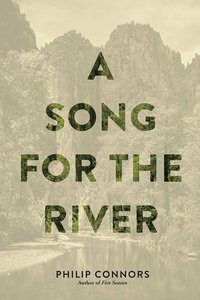 A Song for the River – Philip Connors – 978-1-941026-90-8 – Cinco Puntos Press – Hardcover – 256 pages – $22.95 – September 18, 2018 – ebook versions available at lower prices.
A Song for the River – Philip Connors – 978-1-941026-90-8 – Cinco Puntos Press – Hardcover – 256 pages – $22.95 – September 18, 2018 – ebook versions available at lower prices.
“The river that runs through the wilderness opens his heart: the mountains burn, friends die, and green shoots sprout from the ashes.”
Philip Connors, like some other fine writers of the desert southwest, notably Gary Snyder, Jack Kerouac and Norman Maclean, has been a long time fire lookout. Phil has spent many years in the Gila Wilderness in New Mexico. He began working as a fire lookout in 2002, and wrote about his experience in an earlier book, Fire Season: Field Notes From a Wilderness Lookout.
As it happens, I visited the Gila Wilderness for the first time in 2018, and was completely smitten by its beauty and the magnitude of the mountains, the vistas, and the Gila River. I’m sure I had read about the Gila at some point; it is famous for being the first wilderness area established anywhere in the world (in 1924), principally through the efforts of the great naturalist Aldo Leopold. Leopold was himself one of our best writers about nature; the Forest Service transferred him to Wisconsin, perhaps fortunately for the rest of us, as his Sand County Almanac has inspired so many to a better understanding of the natural world.
The Gila area is not only beautiful, but it is historically important as well. When we were there, we visited the famous Mogollon cliff dwellings, which are simply extraordinary. After that culture disappeared, the Gila was subsequently home to the Apache, and then the American pioneers, outlaws, and miners who displaced them. It’s an area which Connors knows intimately, and this powerful and emotionally gripping book reflects the depth of his knowledge of places and people, of the natural landscape and the depth of both human despair and our equally transcendent spirit.
There is a great deal of pain and sorrow in this book, but the spiritual and emotional power of Connors’ writing and his ability to transform experience into something resonant is important for himself and for his readers. The power of the writing is palpable and strong. It’s a beautiful book that I hope will be read by many.
Wilderness is where the heart grows stronger, or breaks, or both. No matter, we need these places and the writers who, like Connors, bring forth meaning out of pain, beauty out of loss.
Philip Connors was raised on a farm in Minnesota, went to the University of Montana for college, and spent a number of years working as a journalist. But he became disillusioned and made his way west, which clearly has become his true home and emotional center. His first book, Fire Season: Field Notes From a Wilderness Lookout won the National Outdoor Book Award, the Sigurd Olson Nature Writing Award, the Reading the West Award for nonfiction, and the Grand Prize from the Banff Mountain Book Competition. His second book, All the Wrong Places, a memoir of life after his brother’s suicide, was published in 2015.
Talking to Philip after reading this beautifully written, moving narrative of nature and loss was a great experience for me.
“Everything that is absent in the current political crises of this nation is abundantly present in Philip Connors’ A Song for the River: humility, quietude, forgiveness, and gratitude. His writing is pure, exact, compassionate, and often elegaic…I loved this book.”
—Benjamin Alire Sáenz, winner of the PEN/Faulkner for Everything Begins and Ends at the Kentucky Club
Visit Philip Connors’ own website here and his outstanding, El Paso based publisher, Cinco Puntos Press, here.

Podcast: Play in new window | Download
Ken Krimstein: The Three Escapes of Hannah Arendt
November 28, 2018 by David
Filed under Graphic Novels, Non-Fiction, WritersCast
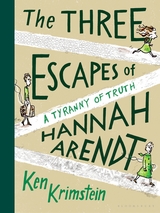 The Three Escapes of Hannah Arendt: A Tyranny of Truth – Ken Krimstein – Bloomsbury – 240 pages – Hardcover – 9781635571882 – $28.00 – September 25, 2018 – ebook versions also available at lower prices.
The Three Escapes of Hannah Arendt: A Tyranny of Truth – Ken Krimstein – Bloomsbury – 240 pages – Hardcover – 9781635571882 – $28.00 – September 25, 2018 – ebook versions also available at lower prices.
What a completely cool and unexpected pleasure it was to discover this amazing book! Yes, I had seen Ken Krimstein’s cartoons in the New Yorker, and I have even read a bit of Hannah Arendt’s powerful writing over the years, but neither Ken’s humorous work, nor my limited knowledge of Arendt’s life prepared me for the serial delight of this graphic novel biography of one of the twentieth century’s most important thinkers.
Hannah Arendt is one of those intellectual figures whose reputation obscures her actual story. Her books were highly influential and widely read in the mid and late twentieth century, though I suspect in present times, now are consumed mostly by college students and scholars, as serious political philosophy does not have a broad readership anymore (if it ever did). We know of her mainly through her many famous books, including The Human Condition, On Totalitarianism, and Eichmann in Jerusalem, among her many, many others.
Arendt’s writing on the nature and form of authoritarianism, couched in her direct experience with Hitler’s Germany, and the rise of Stalin after the war, certainly has become increasingly resonant today, for obvious reasons. And with the increase in modern day anti-Semitism, it is difficult to not draw comparisons between the 1930s world she inhabited and our current troubled experiences.
So it is timely to think about Hannah Arendt’s work, and especially to learn how that work was shaped by her extraordinary life and mind. As revealed in this wonderful biography, Hannah Arendt’s story is heroic and rich. The details about her life continually surprise and delight us. The men and women she knew are some of the greatest thinkers and artists of the century, and it is remarkable just how many now-famous people appear in her life. She knew and associated with so many,from philosophers like Heidegger and Jaspers, to political theorists like Walter Benjamin, writers like Mary McCarthy and geniuses like Albert Einstein and Sigmund Freud, and her own writing and thinking have influenced generations of thinkers and writers.
The escapes Krimstein documents so heart wrenchingly in this book were all determinative to the development of her thinking and writing, and shaped her individualistic, powerful thinking about what it means to be an engaged citizen in a modern world in constant strife. Reading this book was inspiring, and I give full credit to Ken Krimstein for bringing Hannah Arendt to life for me in a way I doubt a prose biography could have done.
Ken Krimstein’s cartoons have been published in the New Yorker, Barron’s, The Harvard Business Review, Prospect Magazine, Punch, The National Lampoon, the Wall Street Journal, Narrative Magazine and many others magazines. His writing has been published in The New York Observer’s “New Yorker’s Diary” and a number of humor websites, including McSweeney’s Internet Tendency, Yankee Pot Roast, and Mr. Beller’s Neighborhood.
Ken is also a teacher at De Paul University and The School of the Art Institute of Chicago. You can read more about him, his work, and The Three Escapes at his website here, where you can also see sample pages from the book.
It was a pleasure for me to meet Ken, and I think you will enjoy our conversation just as much as I did.
“Ken Krimstein’s deeply moving graphic memoir about the life and thoughts of philosopher Hannah Arendt is not only about Hannah Arendt. It’s also, through her words, about how to live in the world, the meaning of freedom, the perils of totalitarianism, and our power as human beings to think about things and not just act blindly. Krimstein explains Arendt’s ideas with clarity, wit, and enormous erudition, and they still resonate.” – Roz Chast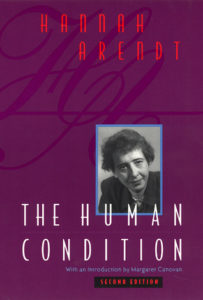

Podcast: Play in new window | Download
Justin A. Frank MD: Trump on the Couch: Inside the Mind of the President
October 23, 2018 by David
Filed under Non-Fiction, WritersCast
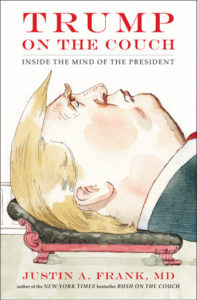 Trump on the Couch: Inside the Mind of the President – Justin A. Frank, MD – Avery – 304 pages – Hardcover – 9780735220324 – $26.00 – September 25, 2018 – ebook editions available at lower cost.
Trump on the Couch: Inside the Mind of the President – Justin A. Frank, MD – Avery – 304 pages – Hardcover – 9780735220324 – $26.00 – September 25, 2018 – ebook editions available at lower cost.
Inside the mind of this president is a scary place to be, as Dr. Justin Frank aptly tells us in this frightening and compelling book. In an interview with the Guardian newspaper, Dr. Frank said: “Yes, we should be scared,” Frank, a clinical professor of psychiatry at George Washington University, told the Guardian. “We have to accept that he is the president and we also have to accept that he’s never going to change because he can’t. Once we accept those things, we can then figure out what to do with our fears.”
Almost everyone I know has thought about the psychology of Donald Trump. So in some ways he might be the most analyzed person in the history of the world. Ironically, that appears to be exactly what he wants. Funny how whether one loves or despises Donald Trump, he wins, because his narcissistic, empty soul requires the full attention of the entire world and still cannot be satisfied.
In this book, like his two previous books on Obama and Bush, Dr. Frank has applied the principles of applied psychoanalysis, which allows him to at least somewhat clearly understand the mind of Donald Trump. While it is true that the American Psychiatric Association’s Goldwater Rule prevents psychiatrists from offering diagnoses on public figures who are not their own patients, Frank has invoked the moral responsibility that compels him to speak out, something which all of us can understand and appreciate. So much is at stake and so much is in the hands of someone who is demonstrably unstable, and as Dr Frank shows in this book, someone who is riddled with pathologies, and quite evidently, deeply disturbed.
From his close study of Trump’s patterns of thought, action, and communication, and an analysis of his personal life story, Dr. Frank uncovers a personality deeply distorted by mental health problems. His work reveals many insights about Trump and his behavior, including some highly disturbing glimpses into his childhood, his family, his business dealings, and Trump’s unique way of literally inventing his own reality.
While most of us can see for ourselves that our president is wildly unhinged, Dr. Frank’s more clinical description and analysis of Trump’s narcissism, misogyny, racism, and untruthfulness are highly useful in helping us to understand more fully the reasons and causes behind Trump’s pathologically disturbed behavior. Whether it can help us prevent him from leading us into disaster is unclear. But this book should be required reading for anyone, supporters and opponents alike. It might also help us to better understand his appeal to those who do find him compelling. At least for me, it made me want to turn off the television and stop giving him the attention he craves. I wish the news media would do the same.
I very much enjoyed the opportunity to talk about this book with Dr. Frank, and to learn so much from a professional analyst.
Read more about the book at the author’s website.
“I’ve known Trump a long time and I have even tried my own hand at psychoanalyzing him on television. But, Dr. Frank has shown a more complete picture inside our 45th President’s mind than I ever dared to consider. Behind all Trump’s tough guy theatrics, his petty cruelties and bloated ego is a tangled knot of pathologies that should terrify us all. Trump on the Couch is a great first step to sizing up the President’s inner demons.”
—Donny Deutsch, Co-Host on MSNBC’s Morning Joe
Podcast: Play in new window | Download
